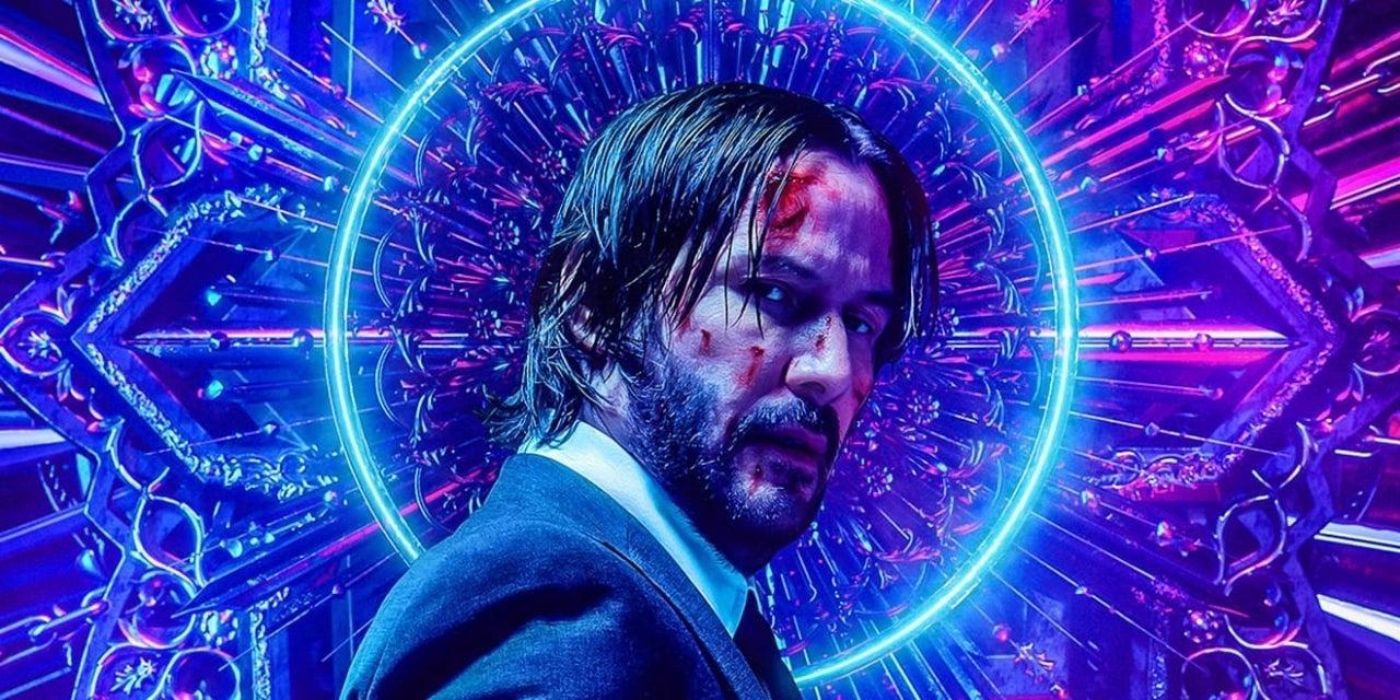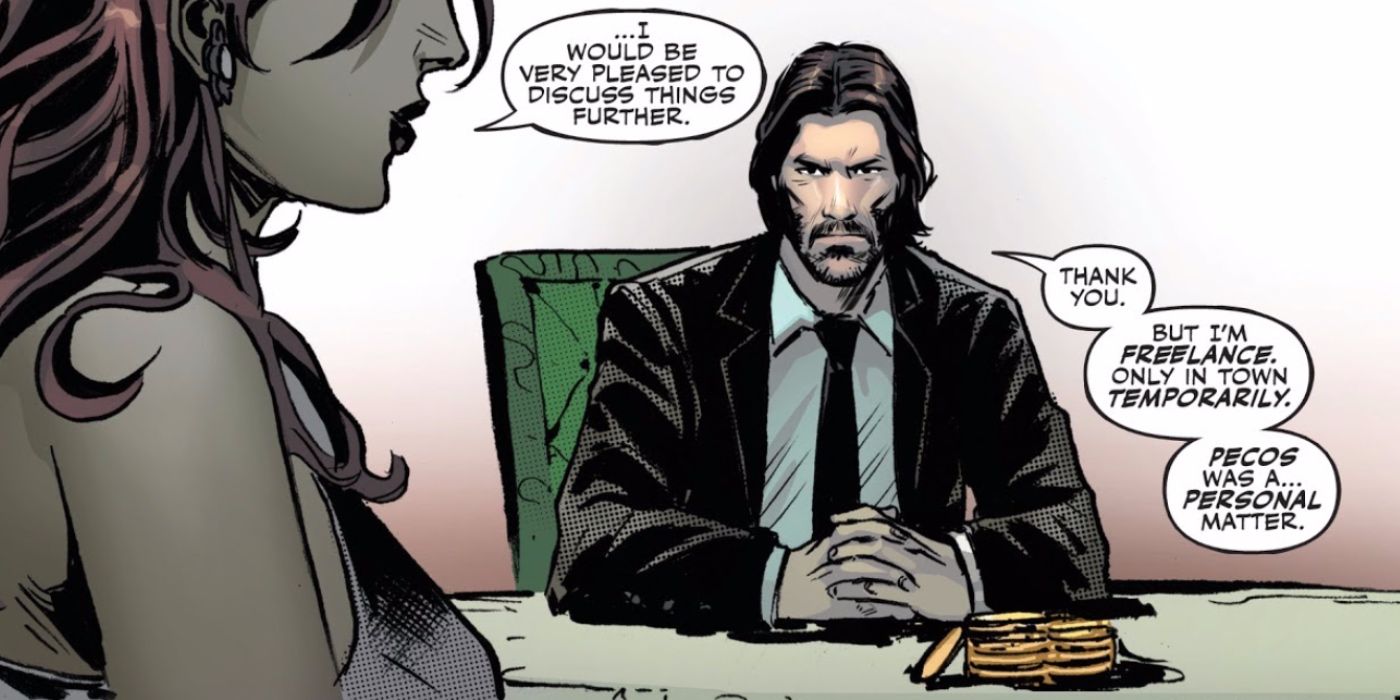While John Wick declaring war on the Continental as well as the High Table, the entire criminal enterprise the hotel represents, was received by fans as a major twist ending for John Wick Chapter 3: Parabellum, the series’ prequel comic reveals that it shouldn’t have been. Since the first film, John Wick has been shown as being an outsider who follows the rules only to the extent of his own moral compass and internal code. As revealed in the prequel comic, John Wick has always been that way since he was a child, a personality trait that inevitably leads him to his conflict with the Continental.
In the five-part prequel comic series John Wick by Greg Pak and Giovanni Valletta, John is hunting down a group of assassins who were responsible for destroying his hometown as a boy and killing those closest to him. During this personal murder mission, John Wick comes across a Continental Hotel where he is approached by a Russian mob boss named Maria who offers him a position within the Russian crime syndicate as its personal assassin. John Wick declines her offer, saying that he is just a freelance killer who is currently on a job that is personal. While John Wick is eventually forced to join Maria leading to his employment under the first film’s antagonist Viggo Tarasov, his initial reluctance speaks to where he would find himself by the end of the third film.
When fans were introduced to the Continental, they were shown a world of immoral decadence as those who kill people for money live it up in the safety and luxury within their headquarters. The excess shown within the Continental is the opposite of what John Wick stands for. In the prequel comic, it is revealed that John lived in poverty as a child which proves his origin was that of a modest life. Skip ahead to John Wick’s life before the events of the first film and he proves once again that a humble life living with the woman he loves is all he wants. The Continental represents a world of corrupt indulgence which is completely at odds with John’s ideal life. John Wick has always been an outsider, using the structure of the Continental as a means to an end, but he has proven time and again that he hates what the organization stands for. Now, that hatred is driving John Wick to be the cause of the Continental’s ultimate destruction.
The John Wick prequel comic reveals that John wasn’t an outsider in the films because he was just coming out of retirement, but because he feels as though he never belonged in the system in the first place. John joins Maria after his personal assignment goes south, a decision that traps him within the bounds of the organization until he is finally able to get out and live the modest life he had always wanted to with his wife. By the end of the issue, Maria reveals that John’s entire mission throughout the comic series was by her own design in order to trap him under her thumb, and by extension under the thumb of the Continental.
With the revelation that John Wick’s involvement with the Continental was orchestrated against his will, it becomes clear why he would be the means of its destruction. John Wick’s ideal lifestyle never aligned with the criminal organization, so when he was betrayed by Winston, the manager of the New York branch of the Continental Hotel, in the third film, he allows that hatred to drive him to take an active and violent stance against the Continental. While the ending of John Wick Chapter 3: Parabellum was the final straw, John Wick has a long-held disdain for the Continental and its ways as revealed in the prequel comic, proving that destroying the Continental is his destiny.


